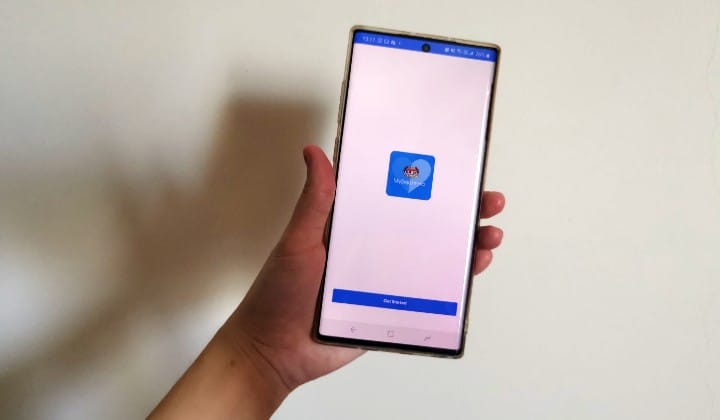How Will Malaysia Move Towards The Digital Frontier & What We’ve Enjoyed So Far?
The digital economy forms a network that enables maximum efficiency, productivity, creation and wealth.

Subscribe to our Telegram channel for the latest stories and updates.
It may seem like a far off vague future seen only in movies, but the truth is that we’re already living in a world run by technology. Only in the present, it’s known as the digital economy.
You see, the digital economy is a complex web made up of different technological devices, infrastructure and services that are linked together to our general productivity, helps us make money and make our lives more convenient.
While Malaysians may not be zipping around in flying cars, we ARE already dependent on our digital devices for news and weather updates, sharing our thoughts on social media and ordering-in food to have delivered to your doorstep.
Nations around the globe have invested heavily in expanding the digital economy. Here in Southeast Asia, the emergence of tech giants like Grab, Lazada and others reveals the region’s progress in undergoing a digital transformation.
Malaysia too has been reaping the benefits of our investments in the digital economy which we can see from the quality of life improvements that we enjoy today;
1. Bring on the Gs!
Internet connectivity is the cornerstone of our modern lives and enables the digital economy to function and grow. According to the Malaysian Communications and Multimedia Commission (MCMC), our country’s internet usage increased to 88.7% of the population in 2020 with 39.2% online up to four hours a day. It would be hard to dismiss the importance of having reliable, fast and affordable broadband connectivity, especially in rural areas.
Our continued effort to progress with leaps made in technologies such as fifth-generation wireless (5G) networks and the next-gen 6G connection would only further the comfort and simple utilities that we make use of each day like streaming high-definition videos, playing online multiplayer (MMO) video games and working from home (WFH) during such times as the pandemic.

2. A completely cashless society
You’re probably already familiar with going cashless as the use of e-Wallets has been slowly growing locally over the years. Honestly, when was the last time you paid cash for your coffee?
But fintech is SO much more than that with the digital economy bringing changes to the world of finance and how we perceive and manage our money.
The adaptation of technology into financial services allowed us to perform everything from paying bills and insurance, manage funds or trade stocks, with secure and easy-to-use technology and platforms.
Imagine never having to carry around cash, or pass it from one person to another, at a time when even shaking hands is considered a dangerous activity.

3. Digital minds
With the internet transferring our previously analog lives onto a digital landscape, the growth of the digital economy has pushed the efficiency, productivity as well as the level of creativity and talent that we as a nation possess.
The adaptation of information and communication technology (ICT) have not only broadened our perspectives but also increased our aptitude in navigating our constantly changing world.
Think of how easy life has been when simple and complex tasks can be done on your “pocket computers” and how far and fast we can get our voice and ideas across compared to just a decade ago. For the foreseeable future, anyone can simply acquire and improve upon their skills through taking online courses and training or even make a name for themselves on cyberspace.

Education, especially among our youths have also greatly improved through the use of ICT where kids today have the ability to access knowledge and information instantaneously and are able to communicate effortlessly with their peers and teachers or whomever they choose.
The digital economy has also fueled the rise of e-commerce and services and led the way for what’s now known as the “gig economy” as individuals and corporations are able to independently earn and profit – consequently creating more job opportunities and generating wealth.

4. A digital world
With data now being considered as the new currency of our time, the digital economy provided a framework for making critical information both accessible and secure.
Systems such as cloud computing and data sharing capabilities made available in an array of devices and platforms have improved upon our efficiency at managing all manner of situations with complete accuracy – Look no further than the Covid-19 contact tracing and reporting systems that we have integrated to the new normal that we have become accustomed to.

Advancement in cyber security and personal data protection have also assured us the reliability of the systems and services that help us navigate the digital world with little to no worries.
Malaysia remains committed in our march towards the digital frontier and making the country a leader in the global digital economy. Through private and public investments as well as relevant policies and regulation there is no end in sight to what the tomorrow can hold.
Learn more about Malaysia’s plans for the future with the launch of the Malaysia Digital Economy Blueprint (MyDigital) brought to you by the Prime Minister’s Economic Planning Unit (EPU) on Friday 19 February at 9am, live via www.epu.gov.my.
Share your thoughts with us on TRP’s Facebook, Twitter, and Instagram.
Typing out trending topics and walking the fine line between deep and dumb.








